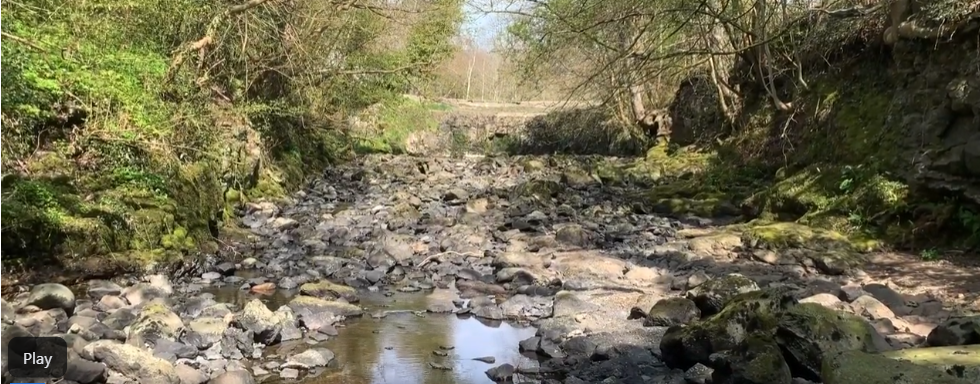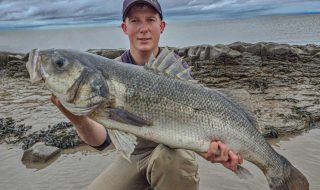Fish Legal has referred environmental regulators in Northern Ireland to the Office for Environmental Protection (OEP) for failing to protect migratory fish including salmon, dollaghan and brown trout on the Crumlin River which flows into Lough Neagh.
The OEP has confirmed that the Department of Agriculture, Environment and Rural Affairs (DAERA) and Northern Ireland Environment Agency (NIEA) are both under formal investigation for not acting to stop the abstraction of water, leaving a section of the river severely depleted, on the River Crumlin that is preventing adult fish from reaching their spawning grounds.
Footage showing whole sections of the Crumlin River, in County Antrim, drying out upstream from Crumlin town has been provided to the OEP in the referral made by Fish Legal on behalf of the Crumlin and District Angling Association.
Fish Legal has asked the OEP to investigate ongoing breaches of the Water Environment (Water Framework Directive) (Northern Ireland) Regulations 2017, Abstraction and Impoundment Licensing Regulations 2006 and a lack of enforcement by DAERA under the Northern Ireland Fisheries Act 1966.
Justin Neal, Solicitor at Fish Legal, said “Anglers has been reporting this problem stretch to the authorities for over five years but nothing has changed. Despite concerns raised with the Department, who are charged with regulating abstraction by the aquaculture industry in Northern Ireland, the volumes being extracted year on year leave the riverbed dry for a significant part of the year regardless of the consequences on migratory fish.”
He added: “With both NIEA and DAERA missing in action, we hope that the Office of Environmental Protection will step in to put a stop to this blatantly illegal activity”.
David Kennedy from Crumlin and District Angling Association said “The Crumlin and District Angling club have gathered evidence for the past number of years highlighting the devastating impact of water abstraction on the Crumlin River. A 750m stretch of our river is essentially left to go dry with the total flow of the water course being able to be collected in a pair of cupped hands.”
He added: “This evidence has been presented to the Department and officials from the agencies associated with the regulation of our waterways, yet nothing has changed. We are now entering our sixth year where we expect the results to be the same. The Department has the ability to change this situation and protect the Crumlin River. We welcome the referral of this issue to the Office of Environmental Protection.”






